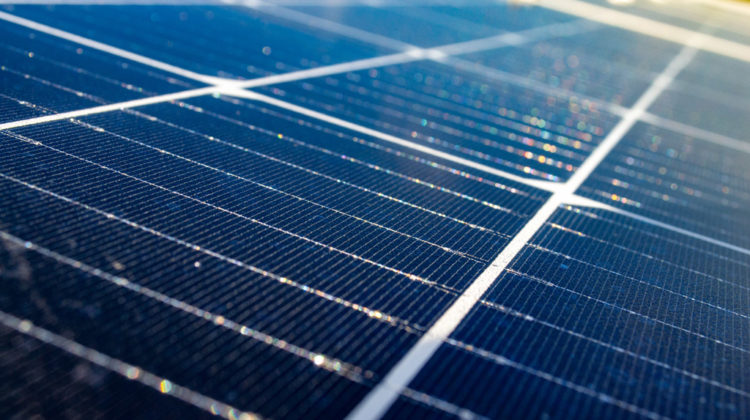
Scientists from the University of Leicester have developed an alternative process for recovering high-purity silver and aluminium from end-of-life photovoltaic (PV) cells, the functioning units of solar panels, that uses cheap solvents and is environmentally friendlier than the most common process used at present
The process, developed by Guillaume Zante and his team in the Centre for Materials Research uses iron chloride and aluminium chloride dissolved in brines to extract the silver and aluminium from solar cells. The process retrieves more than 90 per cent of the silver and aluminium within just ten minutes. The silver recovered is high purity, which means that it can be reused in industrial settings.The solvents extracted the silver and aluminium without affecting the silicon in the structure of the PV cell, indicating that it could be reused too.
According to the researchers, this is one of the first instances of the use of brines, rather than mineral acids, to extract metals. Mineral acids such as nitric acid are hazardous chemicals that contribute to acid rain, eutrophication and climate change by releasing nitrous oxide (a greenhouse gas) into the environment. The brines – essentially salty water – used in the process, on the other hand, are made from choline chloride (chicken feed) and calcium chloride (which makes up the grit used on roads to avoid ice), which are cheap and environmentally friendly.
Silver is essential to the functioning of PV cells, helping to transfer solar energy to the silicon components that make up the semiconductor part of the panel’s structure. The amount of naturally occurring silver found in silver ores is decreasing, making supply a concern for the future. This will affect the production of not only PV cells, but also other essentials such as LED chips, nuclear reactors, equipment for the medical industry and more.
The uptake of solar energy is set to increase 30-fold in the next ten years. Where the lifespan of a PV cell is 25–30 years, estimates suggest that there will be 80 megatonnes of waste from solar panels by 2050. Under EU regulations, a minimum of 75 per cent of the material making up solar panels must be recovered and a minimum of 65 per cent recycled. PV cells in landfill can release toxic materials, volatile organic chemicals and heavy metals such as lead and tin, which poses a serious threat to the environment and human health.
‘These new “unusual” brines offer new possibilities for the processing of metals,’ Zante said. ‘Unlike regular salted water made of sodium chloride, we used choline chloride and calcium chloride, but there are many different salts that can be investigated in further studies.
‘Brines are a credible alternative to the toxic mineral acids used for metal processing because of their low price,’ he continued. ‘We are now trying to apply the same approach for different metals from different sources of waste, such as smartphones, thermoelectric materials and magnets.’


